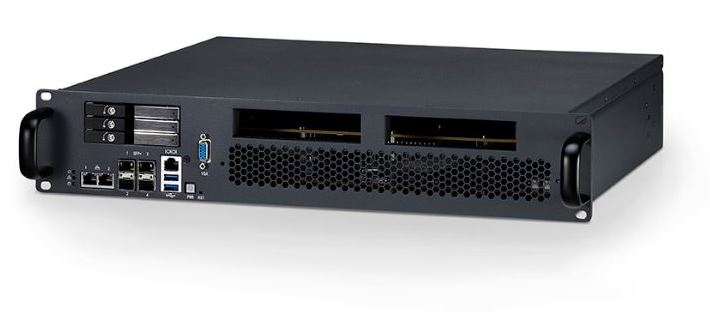In terms of relative geographical location, Edge Servers are closer to the end user in order to achieve shorter latency and faster response time. With regards to deployment for 5G networks, Edge Server installations can manifest in 2 ways: installation in existing 3/4G edge server rooms, or newly constructed outdoor small cells that are designed to improve signal coverage. Regardless of which is used, Edge Servers are not limited by the requirements for operation in large data centers with their optimized spatial planning and cooling infrastructure. In the example of installation in an existing edge server room, the following attributes of Edge Server hardware design provide key advantages:
Limited Rack Space
Racks in edge server rooms for data delivery and access are usually 600mm in depth and very rarely as deep as 800mm. This is much shallower than the standard rack depth of 1200mm in data centers, meaning conventional servers cannot be deployed in existing edge server rooms. Furthermore, the limited space within such server rooms which are typically located in a commercial or office building, means that conventional servers cannot achieve the high-density of computing resources required for 5G capabilities.
The MECS-7210’s 2U height and its depth at 420mm, combined with its high-density scalable architecture make it an ideal solution for Edge Server applications in a standard server room environment.
It’s often not possible to maintain optimum operating conditions in edge server rooms and temperatures may rise to 45°C or higher. As such, Edge Servers have to be equipped with sufficient thermal adaptability to ensure reliable operation in harsh environments.
The MECS-7210’s operating and storage temperature ranges are -5°C to +55°C and -40°C to +70°C respectively, making it resilient to operation in extreme temperature environments.
With the dawn of the 5G IoT era rapidly approaching, Edge Servers must be able to deliver low latency and high-efficiency computing power to accommodate the growing needs of applications of today and tomorrow. Therefore, it is of crucial importance to ensure that the computing equipment selected supports adequate scalability.
The MECS-7210 is built with 2 full-sized PCIe x16 expansion slots that can be used to accommodate GPU cards, FPGA cards, and IO expansion cards, depending on the actual application requirements.









